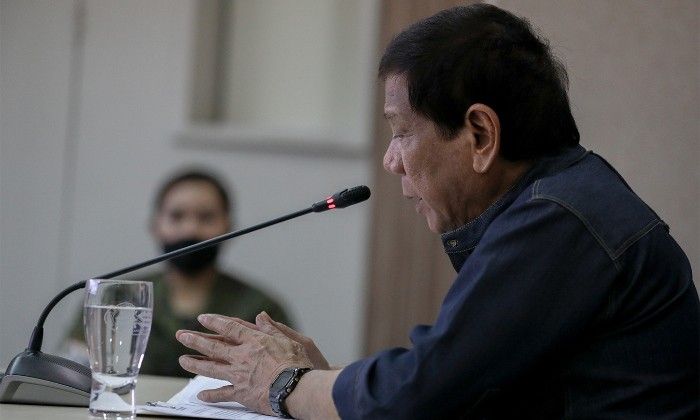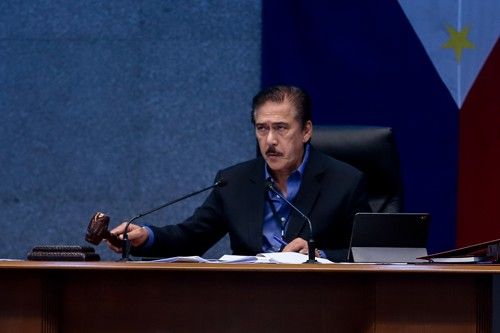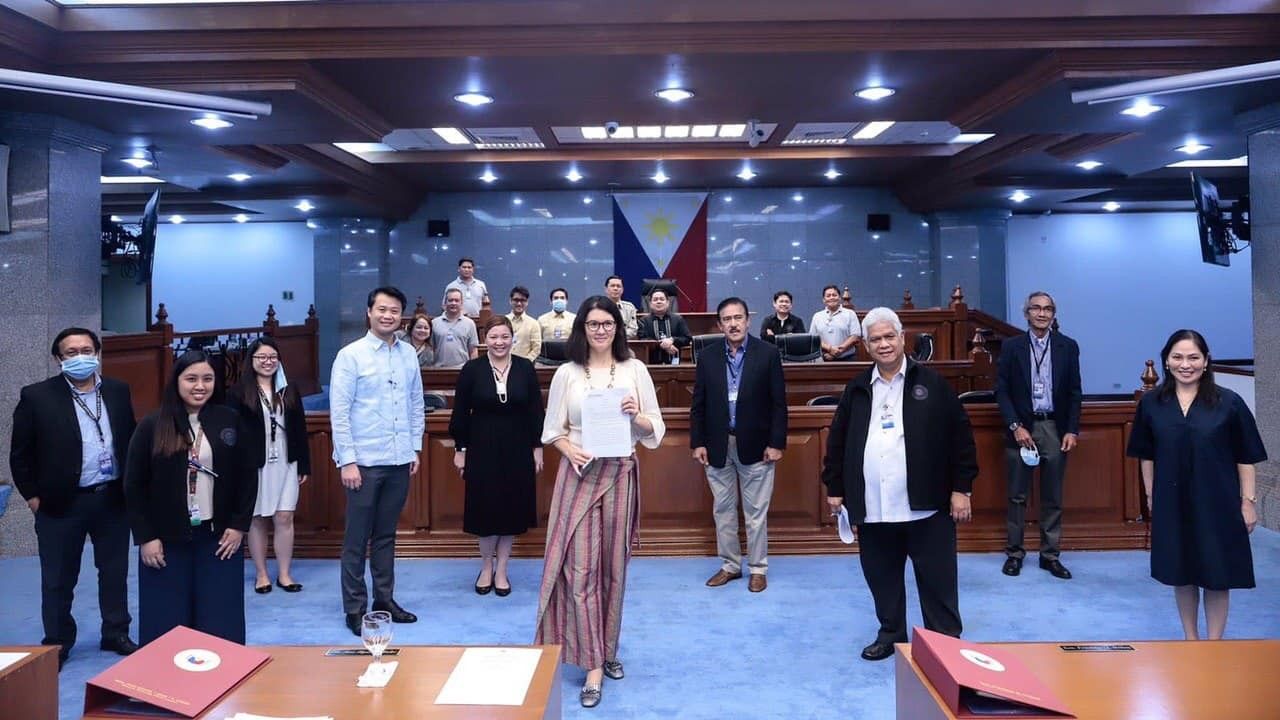Duterte's expanded powers under Bayanihan Act defined but possibly indefinite

MANILA, Philippines — Late Tuesday night, President Rodrigo Duterte signed into law Republic Act 11469 which grants him special authorities to respond to the, though certain measures on sweeping powers in the original Palace proposal were revised in the final iteration.
Overwhelming majorities in both chambers of Congress, which are dominated by administration allies, passed the bill late the previous night.
Under RA 11469 or the "Bayanihan To Heal as One Act" of 2020, the chief executive is handed special powers including the authority to ensure that all local government units are "acting in line with the rules and regulations issued by the national government," the ability to adopt measures against hoarding and profiteering, and the power to procure goods, including medical equipment and supplies.
While authorizing the executive to realign the national budget, the act also allocates funds to provide 18 million low-income families across the country with subsidies worth P5,000 to P8,000 as they try to cope with diminished income and livelihood under a public health emergency.
Although these powers are the president's to wield temporarily, there exists the stark possibility that this may be extended.
Sen. Pia Cayetano, one of the law's principal sponsors, said Wednesday that the newly granted powers of Duterte along with the enhanced community quarantine currently hoisted over mainland Luzon may possibly be extended once their stipulated timelines elapse given the uncertainties under a health emergency.
Open-ended timeline vs COVID-19
Section 9 of the signed version of the Bayanihan bill states that the president's provisional authority will be "in full force or effect only for three (3) months." A caveat added, however, is that Congress can choose to withdraw it earlier through a resolution or extend it through an assembly.
The virtual lockdown of Luzon is set to expire on April 13. Nothing is mentioned yet about what government plans to do to continue stemming the spread of the infection after this date.
Under a quarantine, public transportation has been suspended and movement has been severely restricted as numerous LGUs imposed curfews over their cities.
Vulnerable groups such as informal workers and the disabled, among others, have expressed concern over the limitations brought by the quarantine and its hold on mobility.
RELATED: Social distancing's victims: In a Luzon quarantine, the disabled are mostly forgotten
But Cayetano, who authored the Senate version of the bill that prevailed over the House version, is not so sure the timeline will be strictly followed given the nature of the crisis.
"It will be a difficult time in the next two months, but does it mean after the 31st day, we will all go out? We don't know," Cayetano said in an interview with Philstar.com. "All over the world, people are not able to predict what's going to happen."
She explained that the decision to leave the duration of the law somewhat open-ended was because the novel coronavirus could continue affecting individuals and communities even after the quarantine has been lifted and after the three-month cap.
Should there be a request to extend the powers, Congress will reconvene and discuss whether it is needed.
Cayetano expressed confidence, however, that the Duterte administration can carry out the law's stipulations within two months. "Their (the executive branch's) commitment was two months... that we can be recovering within the two-month period," she said.
Before the passage of the act, a network of lawyers held issue with what they said was "the discretion [of Duterte] to extend the exercise of the emergency powers."

"This limitless grant of emergency powers is tantamount to autocracy. The exercise of such extraordinary powers must have a definite termination date, which can only be extended upon congressional approval," they wrote in a statement.
The new law, which generally adapted Cayetano's and Senate President Tito Sotto's version, addressed this concern.
'Add to solutions, not to problems'
The senator also slammed what she deemed as political and counterproductive backlash over the government's stringent measures in response to the local transmission of the deadly virus.
On Wednesday, the health department confirmed 636 cases with the addition of 86 detections in a single day.
"I don't feel it becomes productive when some people are complaining. Something of this magnitude has never happened before, because all the health experts are saying, close (the cities) down," Cayetano said.
In separate statements issued on Tuesday explaining their votes, Sen. Risa Hontiveros and Rep. Sarah Elago, two of the only lawmakers in both chambers who voted against the emergency powers, expressed concern over the administration's track record in dealing with the new pathogen thus far along with the possibility of abusing the very powers granted.
READ: Hontiveros, Elago say they could not 'blindly trust' government with emergency powers
Palace spokesperson Salvador Panelo has assured the public that Duterte will use the special powers “strictly in accordance with the Constitution," saying that "the grant of powers is for a limited period and subject to the restrictions contained [in the law]."

He also said the “swift and efficient implementation” of the law will “secure the success of the measures established by the national government in eradicating the threat to our national survival.”
“Once again, we urge our countrymen to be wary of rumors and false news designed to create pain and confusion propagated by the enemies of peace and order,” the Palace official said.
A copy of the signed republic act may be accessed here:
"There's a lot of things going on. [If we can all just be] adding to solutions not adding to the problems," Cayetano said. "Other countries... are doing double time preparing. I think it's incumbent [for people] to ask themselves... what is good for us as a country and for our health?" she added.
At the Laging Handa press briefing on Wednesday afternoon, Cabinet Secretary and spokesperson of the government's inter-agency task force against COVID-19 Karlo Nograles called attention away from a possible extension of these timelines, saying it was too early to talk about extending lockdown.
"Focus muna tayo sa task on hand," he said. — with Camille Diola
- Latest
- Trending




























